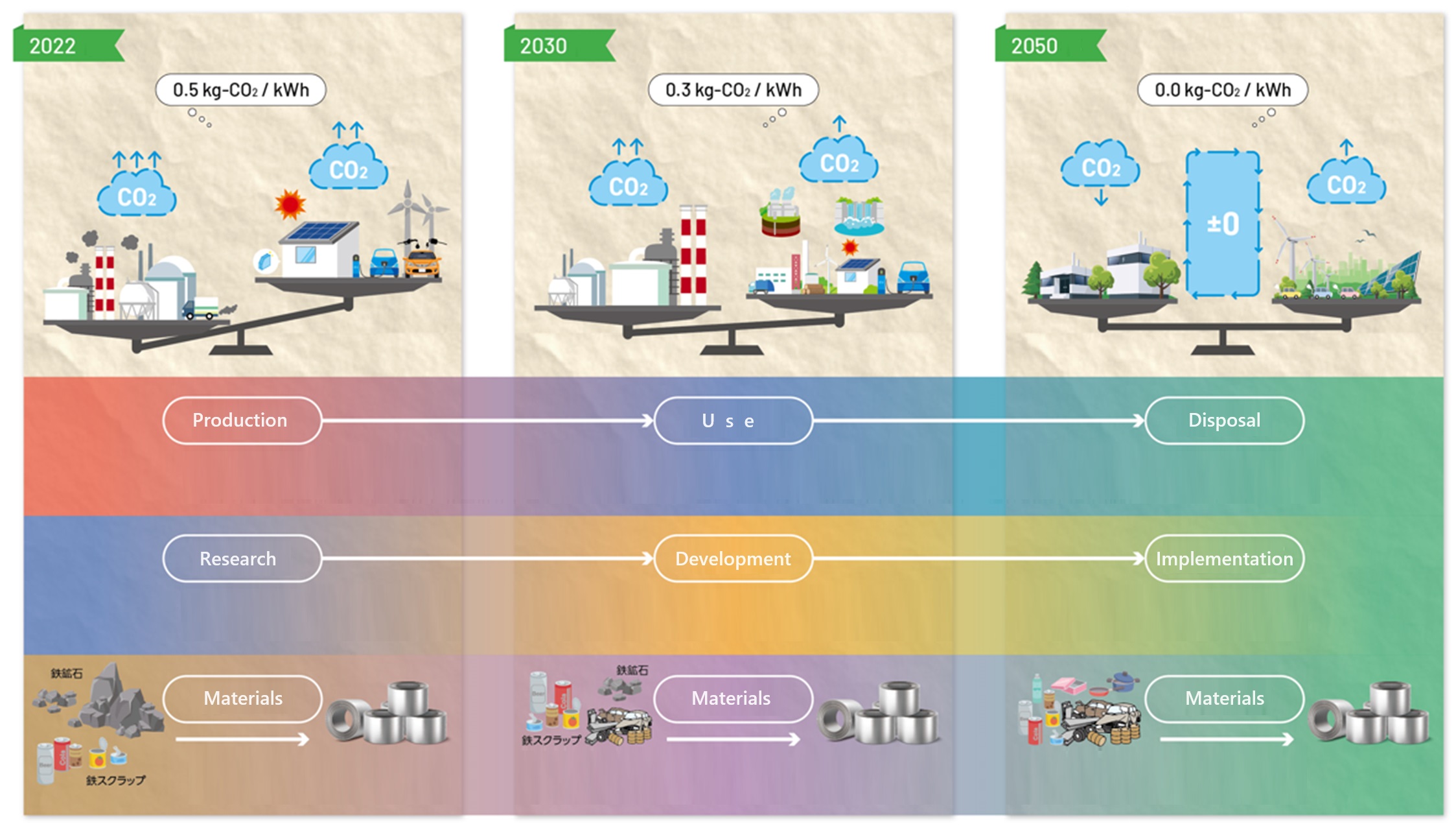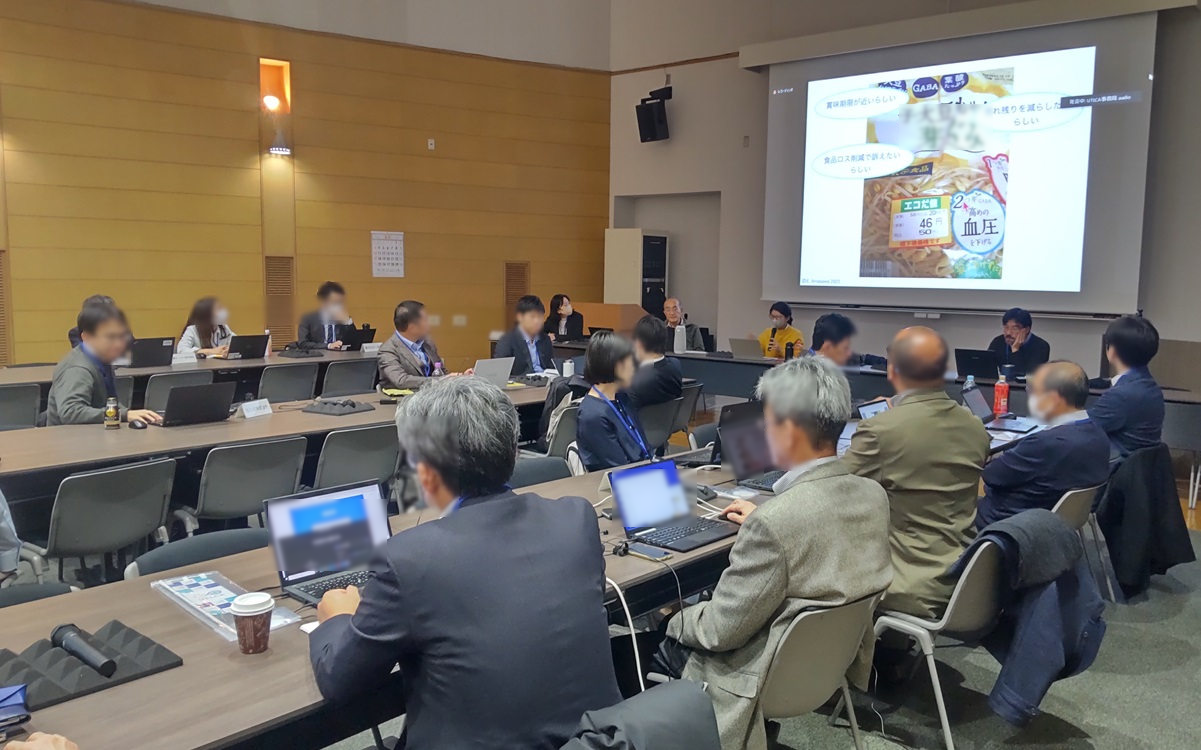- HOME
- Research
- Research Category
- Pre-emptive LCA Social Cooperation Research Departments
Pre-emptive LCA Social Cooperation Research Departments
Pre-emptive life cycle design of advanced science and technology based on future social transition scenarios
Academic principles and standard methodologies for pre-emptive LCA
Significant transformations in technologies and systems are required to build a sustainable society that achieves carbon neutrality and a circular economy. Innovative advanced technologies currently in the research and development stage need to be quantitatively evaluated based not on current societal evaluation criteria but on future criteria, assuming the future society in which they will be implemented. Effective development of advanced science and technology can be achieved by clarifying innovative technologies' performance and societal requirements based on their environmental impacts throughout their future life cycles and feeding this information back into current R&D. We will develop "pre-emptive LCA" that contributes to the design of future societies. Our goal is to establish a new scientific principle beyond conventional academic disciplines. Specifically, the project will focus on developing standardized assessment methods for advanced science and technology and exploring the integrated design of social systems that strengthen the link between production and consumption.
Application of pre-emptive LCA approach to practical cases
We have established two subcommittees with 16 partner organizations in parallel with developing the pre-emptive LCA methods academically. The Future Scenarios Subcommittee is working on a framework of future scenarios for application to actual cases, including constraints in future societies, factors to be considered, relationships between factors, geographical boundaries and uncertainties in assessment, etc. The Resource Circulation Subcommittee is considering options to address future resource supply constraints and societal demands for a circular economy. Specifically, the subcommittee examines various factors related to future resources, such as technologies and systems contributing to domestic resource circulation, laws and regulations, resource supply risks and constraints, and technological innovations in resource consumption and recycling.
Fostering human resources for pre-emptive LCA
We are tackling the development of human resources with expertise in both advanced technologies and lifecycle thinking through education and initiatives with partner institutions to disseminate new academic principles and methodologies.
Cooperation Company/Organization
- Asahi Kasei Corp.
- KAIHO INDUSTRY Co., LTD.
- Kobe Steel, Ltd.
- SUMITOMO CHEMICAL COMPANY, LIMITED SEKISUI CHEMICAL CO., LTD.
- Technova Inc.
- DENSO CORPORATION
- TOPPAN Holdings Inc.
- NIPPON STEEL CORPORATION
- Mazda Motor Corporation
- Mitsubishi Chemical Corporation
- IHI Corporation
- JFE Steel Corporation
- UACJ Corporation
- Daicel Corporation
- TOYOTA CENTRAL R&D LABS., INC.
Member

-
- Project Professor
Satoshi OHARA
- Project Professor
Laboratory Homepage
Tags



